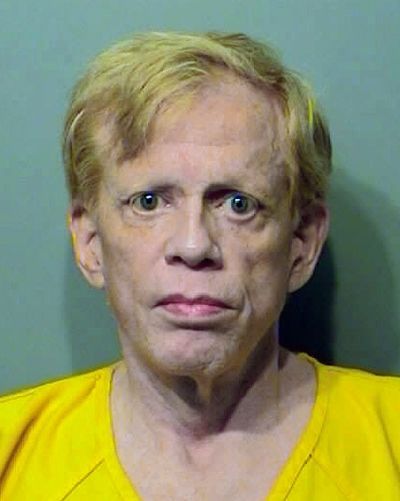Judge says Steele witness unreliable
Phonetics expert may be allowed to testify on tapes

BOISE – Edgar Steele’s defense won’t be able to call two expert witnesses it lined up to question the authenticity of FBI tapes of Steele talking about an alleged murder-for-hire plot against his wife, a federal judge in Boise ruled Thursday.
The testimony and expertise from one of the experts was unreliable, U.S. District Judge Lynn Winmill found, and the qualifications and testimony of the second were irrelevant, at least at this point.
Steele, a self-described “attorney for the damned” who has represented the Aryan Nations, goes on trial Tuesday on four felony charges related to an alleged murder-for-hire plot to kill his wife and mother-in-law. The Sandpoint-area lawyer faces up to 30 years in prison.
The lawyer for Steele’s wife, Cyndi, contacted the proposed experts and sent them the FBI tapes. “Mrs. Steele believes that the tapes were manipulated,” Wesley Hoyt said after the judge’s ruling Thursday. “The victim is totally supporting the accused. She believes in his innocence.”
The case began last June when Larry Fairfax told the FBI that Steele had hired him to kill Steele’s wife and mother-in-law, and paid him $10,000 in silver coins plus a promise of another $125,000. A week later, Cyndi Steele took her car in for an oil change in Coeur d’Alene and workers found a pipe bomb attached to its underside.
Fairfax pleaded guilty to federal weapons charges in October and is in jail awaiting sentencing; he could get up to 10 years in prison.
Steele sat silently through the day-and-a-half pretrial hearing Wednesday and Thursday.
Dennis Walsh, a former New York City detective who said he believes the tapes had been edited, wasn’t qualified to offer that opinion, Winmill ruled.
Prosecutors questioned inflated claims on Walsh’s résumé, noted that key portions of his report duplicated the report from the other proposed expert witness verbatim, and pointed out that Walsh had no education or certification as a forensic examiner.
An electronics engineer and certified forensic examiner for the FBI reviewed Walsh’s work and reached opposite conclusions. “There were no signs of tampering,” FBI forensic examiner Dave Snyder told the court.
A second expert witness, George Papcun, who has a doctorate in acoustic phonetics, testified that he examined the recordings and found anomalies that could have been triggered by editing, or by other factors including electronic glitches. He said he wouldn’t use the term “suspicious,” because a variety of factors could have caused the glitches he observed.
Steele’s attorney, Robert McAllister of Englewood, Colo., told the court, “The government has the burden of establishing authenticity.”
But Winmill said that’s normally done by having people whose voices are on the tapes testify as to whether they accurately represent what was said. If questions arise during that process, he said, it’s possible that Papcun’s analysis of the tapes could become relevant and he could then be allowed to testify.